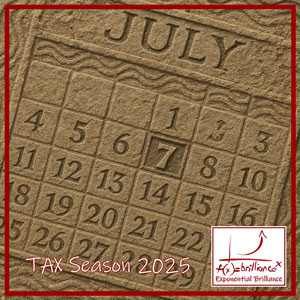Carbon emissions tax!
by
 Amanda Roothman on 3 May 2019
Amanda Roothman on 3 May 2019
Road Taxes!.png)
South African Minister of Transport, Blade Nzimande, spoke at the Motorex Conference in Sun City on 30 April 2019.
During October 2018 South Africa launched the Green Transport Strategy (GTS) under the National Department of Transport.
“Transport is the driver of socio-economic development, but our carbon footprint continues to grow at an incrementally substantial rate.”
He continued to say that the transport sector is the most rapidly growing source of Greenhouse Gas Emissions (GHG) in the country, and the second most significant source of GHG emissions overall.
This is partly attributed to the high-energy intensity in the sector, which relies on imported fossil-based oil, and locally produced synthetic fuels.
In SA, the transport sector accounts for 10.8% of greenhouse gas emissions, with Road Transport responsible for 91.2%.
Goals to achieve to address this challenge:
- 5% of the public and national sector fleet to be converted in the next 5 years, to cleaner alternative fuel and efficient technology vehicles (ideally powered through renewable energy) Thereafter, a 2% increase per year.
“This strategy will ensure that we have environmentally sustainable low carbon fuels by 2022” Nzimande said. - The transport sector will promote norms and standards for fuel economy by putting regulations in place that promote improved efficiency in fossil-fuel powered vehicles with improved environmental impact.
- A 30% shift for freight transport, from road to rail, and a 20% shift of passenger transport from private cars to public transport and eco-mobility transport.
- Investing in green energy infrastructure like biogas filling stations, and electric car charging points.
Nzimande mentioned his excitement about the gradual shift to electronic modes of transport. “We need to embrace such innovations and look to the future to obtain solutions for the present.”
“With some foresight, we might be able save government billions in the long run, as well as conserving our precious environment.”
The Department of Transport said that it will prepare the following regulatory actions targeted at encouraging the modal shift from road to rail and from private vehicle use to public transport:
-
Congestion tax
The department said that it will assist with “the development of regulatory and policy frameworks” for levying a congestion charge on vehicles entering central business hubs. This will require support infrastructure including park-and-rides, integrated eco-mobility transport facilities, as well as bike and car share scheme development. -
Environmental levy
In consultation with stakeholders and the National Treasury, the Department of Transport plans to review the current levels of the environmental levy on new motor vehicle CO2 emissions and expand the tax to include commercial vehicles to more effectively influence energy efficiency and the environmental performance of the country’s vehicle fleet. - Licensing system
The Department of Transport plans to develop a ‘regulatory regime’ in consultation with National Treasury for the annual taxing of vehicles based on their emissions through the annual car licensing renewal system. It added that it also plans to ‘enhance the regulatory regime’ to include a three-yearly test on vehicles that covers road-worthiness and exhaust emissions. - Fuel labels
Vehicles will be labelled in terms of their fuel efficiency and emission standards. - Car life limits
Car life cycle limits will be introduced by the Department of Transport. Exact details aren’t provided yet, but it will entail that a car with an engine with more than 400 000 km should be scrapped, and banned from using the roads, similar to the current taxi recap system. - Freight
Freight vehicles will only be able to enter urban hubs during off-peak hours. “Research will also be conducted into the viability of re-introducing ‘road freight permits’ in South Africa with permit pricing reflecting the emissions for tonne cargo of freight vehicles, as well as road-use charges to internalize the externalizes of possible overloading from freight haulers” - Road construction
Green standards and guidelines will be developed for road construction, maintenance and upgrades. This will include guidelines on climate change resilient materials.
⚙️ Knowing Where to Tap: 🔨 The Brilliance Behind Precision
✨ A story about insight, experience, and collaboration....
by Amanda Roothman on 10 October 2025



